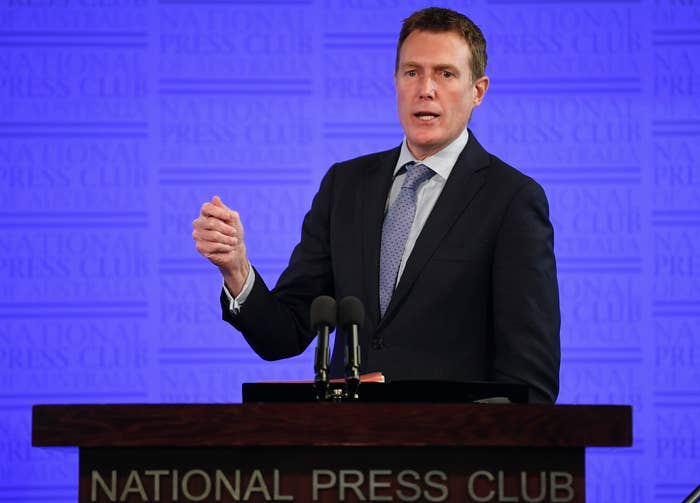
The Australian government will back down on proposed changes to Australia's secrecy laws following blowback from the media.
Under the proposed legislation, two existing secrecy offences would be repealed entirely and replaced by several new offences inserted into the Commonwealth Criminal Code.
The seven-year maximum jail sentence under the existing law will be increased to 20 years.
Part of the concern about the new legislation was that it wasn't just government bureaucrats and politicians who would be ensnared by the new secrecy provisions, but everyone from journalists to organisations such as Wikileaks.
US-based Freedom of the Press Foundation's executive director Trevor Timm told BuzzFeed News the broad language in the bill "is a clear and present danger to countless journalists in Australia".
"The text of the bill doesn't even seem to hide the fact that journalists who report on national security issues can easily be ensnared by it, and could face years in prison for merely doing their job and informing the public of their government's activities," Timm said.
In responding to the backlash on Thursday, attorney-general Christian Porter said that amendments would be made to the foreign espionage legislation to "more tightly define" the circumstances that would be considered a breach of the law.
The offence for commonwealth officers will be separated out from the offence for other people, such as journalists, lobbyists, and academics, he said, with a strengthened defence for journalists.
"So we would remove any requirement that reporting be ‘fair and accurate’, but rather if a journalist reported something that they reasonably believed was a report in the public interest, then they would have a very strong, broad defence," Porter told ABC's AM program.
But he stopped short of saying there would be a blanket defence for everyone.
"I think the reasonable expectation of the Australian public is that where conduct truly endangers the national interest, or indeed lives, that has to be appropriately criminalised," he said.
The Law Council of Australia president Morry Bailes said that the shift was "in the right direction".
"The Law Council’s greatest concern is with the depth and breadth of the provisions and the unintended consequences that flow from them,” Bailes said in a statement.
"Although these amendments do not allay all of the Law Council’s concerns, and more work is certainly needed, these initial amendments all appear to be positive."
He said the legislation still had a "considerable way to go".
In a parliamentary report on the future of public interest journalism released this week, the committee recommended the government look at ways to expand whistleblower and shield law protections. The Coalition minority on the committee agreed that law can impact on the work of journalism and agreed with the rest of the committee that an Australian Law Reform Commission audit of the laws is a "worthy proposal".
The government is still not budging on amendments to another part of its foreign interference legislation – the foreign donations legislation – which business groups, charities, churches and other lobby groups believe would stifle public debate by limiting the public advocacy they can undertake while also accepting foreign donations.
